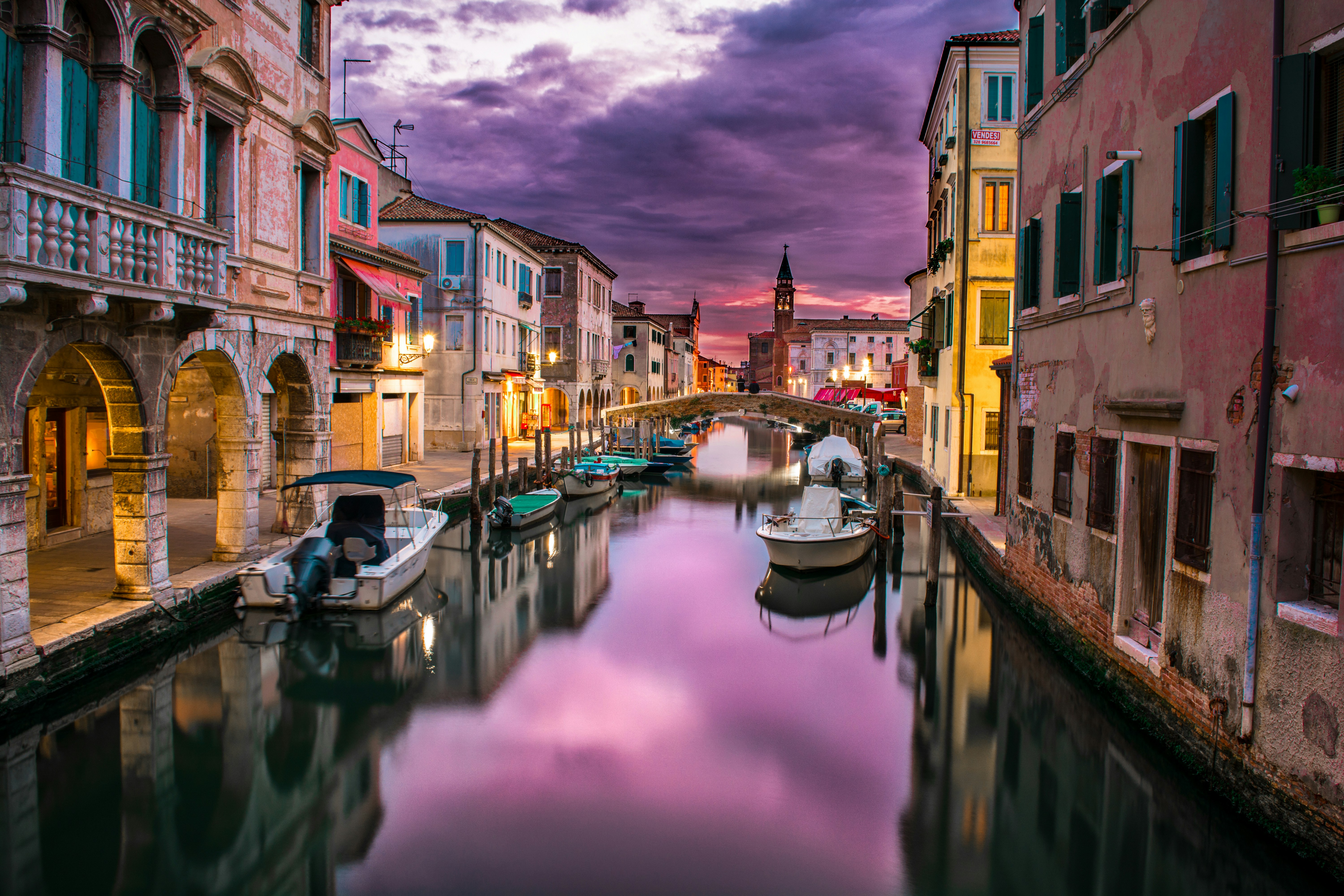Living in Italy: Pros and Cons of Moving There
7 min read
You went to Italy and fell in love with the country. Italy is gorgeous, much like some of its inhabitants. For many, it’s love at first sight. Stunning natural settings, breathtaking architecture, art, history, warm hospitality, and world-class food and wine—it’s hard to imagine living anywhere else.
You might be familiar with Stendhal syndrome, a condition where people get physically and emotionally overwhelmed by the beauty of an artwork. Unsurprisingly, Stendhal experienced this in Florence, Italy.
This is to say, it’s not you. Falling in love with Italy is the norm, not the exception.
When you come back home after your two-week vacation, the post-vacation blues set in. You miss Italy as if it were a lover you briefly kissed and tearfully said goodbye to at the airport, promising that one day you’ll be reunited.
You romanticize the country. You start to wonder if you could move there for good—or at least retire there. Perhaps you have Italian roots and feel as though your blood is calling you back.
But what is it actually like to live in Italy? Some expats who made the move will tell you it’s incredible. Others struggle to adapt. And if you ask most Italians, they might question your sanity for wanting to relocate there.
Even I, born and raised in Italy but now living in Canada, got told, “Ma sei matto?” (Are you crazy?) when I floated the idea of retiring in Italy.
So what’s the truth? What is it like to live in Italy? Is it amazing? Is it a terrible idea, as many Italians claim? I’m here to give it to you straight, laying out both the highs and lows.
This is an opinion piece, but I benefit from extensive lived experience both in Italy and abroad (mostly in Ireland, Canada, and briefly in the USA). So I bring a nuanced perspective, different from an Italian who’s never lived outside of Italy or an expat still in the honeymoon phase.
Here are the pros of living in Italy:
-
You’ll be safe: Italy is generally safe, with low rates of violent crime compared to most industrialized countries. In small-town Italy, you’ll often be as safe as one can be. I remember worrying about luggage left in the car, being now accustomed to Canada. My friend said, “Antonio, we are in small-town Marche; we could leave the car unlocked and nothing would happen.”
-
You’ll enjoy great weather: Italy’s climate varies across regions, but it generally has four distinct seasons, and the mild Mediterranean weather allows for outdoor activities year-round in the center and south of the country.
-
You’ll eat great food and drink awesome wine: When it comes to taste and quality of food, Italy is second to none. Each region boasts unique dishes and award-winning wines, all very affordable by North American standards.
-
You’ll slow down: Italians prioritize quality of life over a relentless work ethic. Few places will offer you as much opportunity to slow down and enjoy life like Italy. This will do your health a world of good, guaranteed.
-
You’ll make friends: Italy is known for its warm, open culture, where human connections are a priority. Family ties are strong, and neighbors often look out for each other. Italians love making new friends and spending time with them, often over coffee or meals. This is particularly true in the center and south of Italy where, as a foreigner, you’ll likely be welcomed with open arms. People in the North are nice too but more reserved.
-
You won’t spend much: Outside of major cities, compared to many Western countries, Italy is quite affordable. A moderate income can go a long way in Italy, which is great news if you plan to retire there without a lavish pension or savings.
-
You’ll see incredible art and history: Italy is a living museum, with an unmatched concentration of art, architecture, history, and UNESCO sites. You can jump on a bus or train at random and find yourself surrounded by history and art. This makes day trip options incredibly abundant if you love culture.
-
You’ll have a rich cultural life: Italy’s vibrant cultural scene includes world-famous festivals, operas, art exhibitions, and concerts. Many cities host local festivals that celebrate everything from food (like sagre dedicated to truffles, sausages, or pasta) to historical events, giving residents and visitors plenty of chances to experience Italian culture up close.
-
You’ll experience stunning natural beauty: From the Dolomites in the north to the beaches of Sardinia, Apulia, and Sicily in the south, Italy’s landscape is incredibly diverse. This variety offers endless opportunities for outdoor activities.
-
You’ll feel like there are 20 countries within a country: Each region, and often each city or town, has its own traditions, dialect, foods, and festivals. This diversity makes traveling within Italy feel like exploring multiple countries within one.
-
You’ll receive good healthcare: Italy’s public healthcare system is accessible and highly rated (one of the best in the world). Private healthcare is available as well, and it’s generally quite affordable for those who want quicker and better service. Of course, this is more so in the north than in the south, but anywhere close to a larger city should have good quality healthcare.
-
You’ll have many affordable travel options: Italy’s public transportation is well-developed, especially the metro systems and the high-speed trains that connect major cities like Naples, Rome, Florence, Bologna, and Milan. This makes it easy and affordable to explore different parts of the country. Plus, Italy’s proximity to the rest of Europe and the existence of absurdly cheap airlines make international travel very easy and affordable.
-
You’ll be able to study for not much money: Italy is home to some of Europe’s oldest universities and a growing number of language schools that offer Italian courses for all levels. Universities are very affordable, unlike in Canada and the US.
Sounds like paradise, I know. So let’s review some of the downsides:
-
You may hate bureaucracy: Italy is notorious for its complex and slow-moving bureaucracy. At times, you’ll be sent from office to office, in a Kafkaesque manner. Even native Italians complain about challenges with obtaining documents or getting timely responses from government offices.
-
You’ll struggle to find a well-paid local job: Italy has a relatively high unemployment rate, especially for young people, and job opportunities may be limited depending on your field. Outside of major cities, job prospects can be scarce, and knowing Italian is a must to be considered for employment. So the most common options for expats are an online business, running some kind of local business for fellow expats, teaching English locally, or having a remote job that allows you to work from Italy.
-
You may struggle with services in the south: Italy has stark regional differences, especially between the north and south. Northern Italy generally has better infrastructure, public transportation, and public services compared to the south. On the other hand, the south is gorgeous. So it’s up to you to decide what you value the most.
-
You’ll be heavily taxed: Italy has high-income taxes and strict tax regulations. The tax system can be complex, and expats may find themselves needing professional help to navigate it (especially to handle double taxation in their country of origin). Self-employed people are taxed even more.
-
You’ll have to learn Italian: While English is somewhat spoken in tourist areas and among younger Italians, proficiency drops significantly in rural areas and among older generations. Expats will need to learn Italian to navigate daily life effectively and build relationships with locals. Thankfully I can help. Subscribe to this newsletter if you haven’t already and download my free guide on how to study Italian daily.
-
You may dislike driving: Italians are aggressive, confident drivers. If you’re used to North American norms, you might find their driving dangerous and chaotic. Furthermore, you’ll only be able to use a North American license for six months. After that, you’ll have to get an Italian driving license, which is a harder, expensive, and lengthy process compared to the license you already have.
-
You’ll miss North American conveniences: Smaller towns and rural areas may lack some conveniences found in larger urban centers, such as 24-hour shops, large supermarkets, and diverse entertainment options. Services like home delivery, international goods, and high-speed internet may be harder to find outside of cities. Local food will be amazing, but your options for other cuisines will be limited outside of larger cities. Houses will often not have AC and similar conveniences.
-
You’ll be early all the time: Italy’s approach to time is often more relaxed than what expats might be used to. Social gatherings may not start on time, and people generally prioritize relationships over strict schedules. For some, this laid-back approach is appealing, but for others, especially those used to punctuality and efficiency, it can be maddening.
-
You may struggle if you’re poor: Yes, Italy is more affordable than many Western countries. However, your experience will be significantly better if you arrive with wealth or have a high income by local standards (perhaps thanks to an online business or remote job). Italy is amazing with money. That is part of the reason why so many Italians complain about it. They are struggling financially with a lack of well-paid jobs. I’ve lived there with little to no money, and no amount of good food, beautiful architecture, and great weather will make you feel happy if you see no opportunities in sight.
So there you have it. This is my take. Italy is what you make of it. You can embrace its way of living and have an amazing time there. Or the negatives may overshadow the positives, making Italy a difficult fit.
Are you considering a move?



